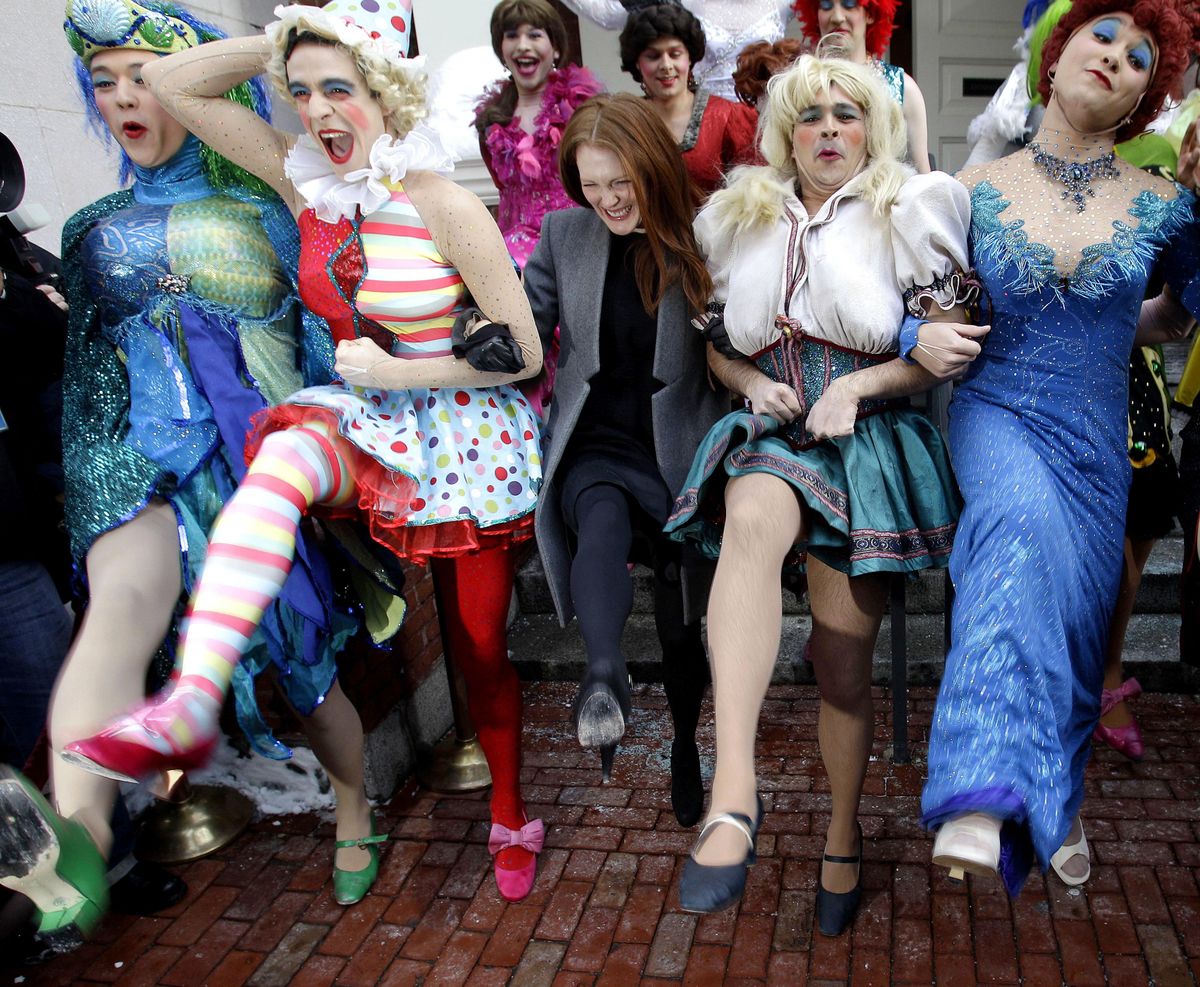Why feminists want Mila Kunis to turn down a Harvard award

BOSTON – A Harvard University theater group with an all-male cast is under fire from those who say it should allow women onstage – and they’re asking Mila Kunis to take up their cause.
Detractors are calling on the Hasty Pudding troupe to start casting women and to update sexist portrayals of women. Amid the debate, some are calling on Kunis to reconsider her acceptance of the group’s Woman of the Year award on Thursday to protest the exclusion.
“It would be a wonderful thing for her to not accept this award, to say this is gender inequality,” said Liz Kantor, a senior studying molecular and cellular biology, who auditioned for this year’s show. “There are women on campus who are more than willing to take advantage of these opportunities, yet they’re still being excluded.”
Hasty Pudding is known for bawdy comedic revues that feature men in drag playing female characters, a longstanding tradition in the group, which says it was formed in 1795.
But more recently, women have sought acting roles in the student-written parodies, which are shown in Massachusetts, New York and Bermuda and have helped launch careers for former students ranging from Jack Lemmon to Broadway composer Larry O’Keefe.
Kantor is among about 20 women who auditioned for this year’s show as a form of protest, an idea started by two women in 2015. Each year, the women have promptly been cut.
Women can instead take behind-the-scenes jobs, including writing the shows or working on the technical crew, the group says on its website.
Students on Hasty Pudding’s executive board, which is led by a woman and includes several female members, declined to comment. Overall, about halfof the 50 students involved with the group are women.
The troupe has been criticized for its all-male cast before, including in a 2016 petition from dozens of former members.
Its shows take cues from the Shakespearean era, when men played all roles. Harvard itself admitted only male undergraduates until a partial merger with Radcliffe College in 1977.
The Man and Woman of the Year awards precede the kickoff of the annual revue, which includes more than 30 performances in February and March.
Kunis, whose credits include “That ‘70s Show” and “Black Swan,” has spoken out sharply against sexism in entertainment, including in a 2016 essay. She did not respond to a request for comment.
Some students and alumni have also said this year’s Man of the Year, Paul Rudd, should stand up against the exclusion. A message seeking comment was sent to a representative for the actor.
Others recently named Woman of the Year by the group include Octavia Spencer and Amy Poehler, who cracked a biting joke about the group’s exclusion of women when she accepted the honor in 2015.
“You know it’s time for a change when the Augusta National Golf Club has lapped you in terms of being progressive,” Poehler said, referring to the Georgia club’s 2012 decision to admit women.
Some critics are also challenging the portrayal of women in the revues, which have featured characters with names like “Donna My Knees” and “Sheila Rowsya.”
“It just magnifies the misogyny that men are portraying these characters,” said Kantor, of West Nyack, New York. “They’re usually just the most blatant stereotypes you could think of.”
Women who have pushed for a place in the cast say students are split. Some say women in drag wouldn’t be as funny, and some say the all-male cast is a tradition that should be protected.
Hasty Pudding started as a social club, taking its name from the porridge members brought to meetings. The school recognizes it as a student group but doesn’t necessarily endorse its views, a school spokesman said. Officials declined to comment on its casting policies.
But the administration has been working to curb groups that exclude members based on gender, including secretive all-male groups known as “final clubs.”
Students who join single-gender social groups, for example, are banned from campus leadership positions, but Hasty Pudding is considered an arts group, not a social group, and isn’t subject to the rule.